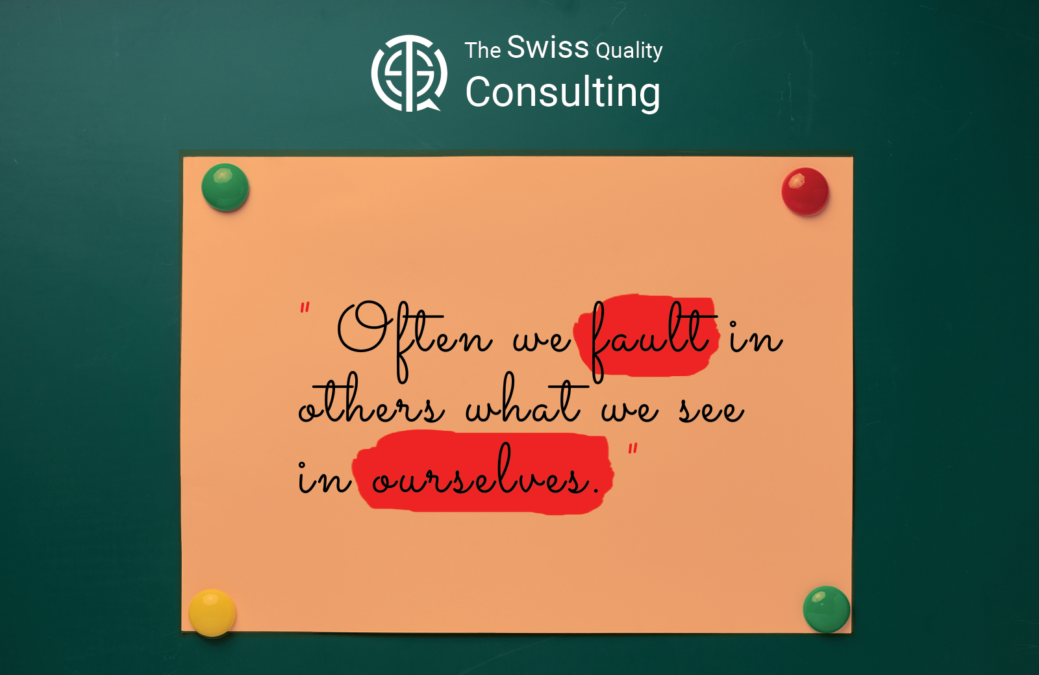Mirror of Faults: Reflecting on Human Nature
In our journey through life, we often find ourselves scrutinizing the actions and behaviors of others, quick to point out their flaws and imperfections. However, it’s worth pausing for a moment to consider a fundamental truth: we often fault in others what we see in ourselves. This tendency to project our own shortcomings onto others is a fascinating aspect of human psychology that can offer valuable insights into our own lives and relationships.
The concept that we tend to see in others what we recognize within ourselves is known as projection. It’s a psychological defense mechanism that helps individuals cope with uncomfortable or unacceptable feelings, thoughts, or traits. Instead of acknowledging these aspects of ourselves, we unconsciously attribute them to others, effectively “projecting” our issues onto them.
Projection can take many forms, from small everyday examples to more significant life situations. For instance, have you ever found yourself annoyed by a colleague’s constant need for attention, only to realize that you also crave recognition? Or perhaps you’ve criticized someone’s lack of punctuality, all the while struggling with your own time management?
Understanding this tendency to project can be a transformative experience. It allows us to turn the mirror inward and explore our own thoughts, emotions, and behaviors more deeply. By recognizing that our judgments of others may be reflective of our own insecurities or unresolved issues, we can embark on a journey of self-awareness and personal growth.
Projection can also affect our relationships. When we project our own faults onto others, it can lead to misunderstandings, conflicts, and strained connections. For example, if we project our fear of rejection onto a partner, we may become overly possessive or jealous. Similarly, projecting our own lack of self-worth onto a friend may lead us to perceive their actions as disloyal or hurtful, even when they have no such intentions.
To break this cycle of projection, self-reflection is key. Here are some steps to help you navigate this complex aspect of human nature:
1. Self-awareness: The first step is to acknowledge that projection exists and that it may be influencing your perceptions of others. Pay attention to moments when you feel critical or judgmental of someone else’s behavior, and ask yourself if there’s a parallel in your own life.
2. Self-exploration: Delve into your own feelings and experiences. Are there areas of your life where you feel insecure, anxious, or inadequate? These may be the very areas that lead to projection. By addressing your own issues, you can reduce the need to project them onto others.
3. Open communication: In relationships, fostering open and honest communication is essential. If you recognize that projection is causing friction in a relationship, discuss it with the other person. Sharing your self-awareness can lead to understanding and empathy.
4. Seek support: Sometimes, dealing with projection and its underlying issues can be challenging on your own. Seeking support from a therapist or counselor can provide valuable guidance and insights into your thought patterns and behaviors.
5. Practice empathy: When you find yourself quick to judge someone else, take a moment to consider their perspective and feelings. Empathy can help you see beyond the projection and promote healthier interactions.
In conclusion, the concept that we often fault in others what we see in ourselves is a profound aspect of human psychology. It reminds us of our shared vulnerabilities and the complexity of our inner worlds. By recognizing and addressing our own projections, we can not only improve our self-awareness but also nurture more fulfilling relationships with those around us.
#SelfReflection #SelfAwareness #Projection #Empathy #PersonalGrowth























